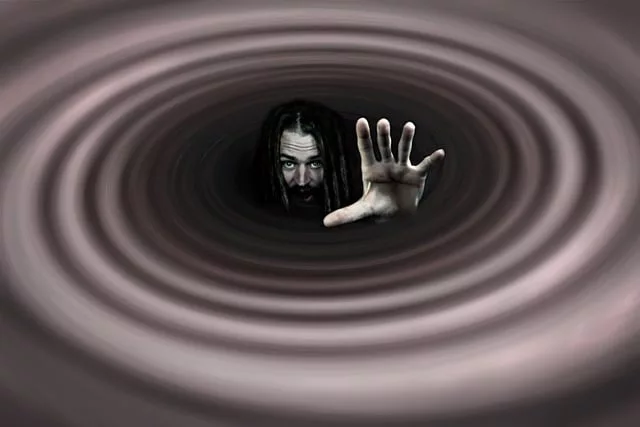Battling depression can make anyone feel isolated even though the chances are high that someone else they know is experiencing a similar situation. Depression is incredibly common.
The National Institute of Mental Health estimates that more than 16 million adults deal with a depressive episode each year.

What is Antidepressant Discontinuation Syndrome (ADS)?
Antidepressant Discontinuation Syndrome (sometimes called Antidepressant Withdrawal Syndrome) is a condition that can develop when a person that’s been on antidepressants for six weeks or more abruptly stops taking their medication.
Dr. Gail Saltz is an associate professor of psychiatry at the New York-Presbyterian Hospital Weill-Cornell School of Medicine and she fully understands the complexities of antidepressant medications.
“What happens when you stop an antidepressant is known as a discontinuation syndrome due to the sudden loss of serotonin and/or norepinephrine that had been boosted in the brain by the medication,” explains Dr. Saltz, in an interview with HuffPost.
According to the American Family Physician, Antidepressant Discontinuation Syndrome (ADS) occurs in about 20 percent of patients who abruptly stop taking their medication.
What are the Symptoms of Antidepressant Withdrawal Syndrome?
The symptoms of Antidepressant Withdrawal Syndrome vary for each individual depending on the type of medication prescribed and the length of time they were using it before stopping.
The most common symptoms include some of the following:
- Flu-like symptoms, such as body aches, nausea, vomiting, and diarrhea
- Headaches
- Anxiety
- Depression
- Insomnia and nightmares
- Fatigue
- Dizziness or vertigo
- Muscle spasms and tremors
What Medications Can Cause Antidepressant Withdrawal Syndrome?
The two most widely prescribed types of antidepressants are Selective Serotonin Reuptake Inhibitors (SSRIs) and Seretonin-norepinephrine Reuptake Inhibitors (SNRIs).
Monoamine Oxidase Inhibitors (MAOIs) are also effective for treating depression and are sometimes used for Parkinson’s disease and similar disorders.
These prescription depression medications are commonly known by their generic names such as:
Selective Serotonin Re-uptake Inhibitors (SSRIs)
- Celexa
- Lexapro
- Paxil
- Zoloft
Prozac (Fluoxetine) is an SSRI but it has a longer half-life than the others and usually isn’t as problematic as those with shorter half-life.
Serotonin–Norepinephrine Reuptake Inhibitors (SNRIs)
- Wellbutrin
- Cymbalta
- Effexor
Monoamine Oxidase Inhibitors (MAOIs)
- Nardil
With advances in depression treatment, more Americans are taking SSRIs and SNRIs than ever before.
In fact, between 1999 and 2014, CBS News reports, nearly one out of every eight Americans over the age of 12 had used antidepressants.
Prevention and Treatment of Antidepressant Withdrawal
The most effective way to avoid ADS altogether is to taper off antidepressant medication under the care of a physician.
By gradually reducing the dose of SSRIs and SNRIs over time, it allows the body’s chemical balance to adjust.
Still, it is possible for people who decrease their dose too rapidly or stop taking their meds in the prescribed way to experience some symptoms of ADS.
If there are any problems while taking prescribed mental health medication, speak with a doctor as soon as possible to properly change doses or switch to a different medication.
For those who stop cold turkey against the prescription directions, the symptoms described above may develop within a few days and could last for weeks or longer if untreated.
The most common treatment for Antidepressant Discontinuation Syndrome is to start taking antidepressant medication again until the symptoms subside.
Sometimes Fluoxetine is prescribed because, as mentioned above, it has a longer half-life and stays in the body longer allowing for a more gradual taper-off period.
At that point, the general course of action is to slowly taper the medications as directed by a doctor.
Self-Medication Can Lead to Addiction
It’s not uncommon for people suffering from depression to resent the idea of taking a pill to “feel better.”
Some patients don’t realize until they start counseling that they were already self-medicating with drugs and alcohol, in many cases leading to substance abuse and addiction.
Co-occurring disorders, also referred to as dual diagnosis treatment, include the presence of mental health disorders, such as depression or post-traumatic stress disorder (PTSD), along with an addiction to drugs, alcohol or a combination of both.
It’s not always clear which disorder came first, but each disorder can make the symptoms of each other much worse.
Treatment can be effective, but moving into recovery requires seeking help for both mental health and substance abuse disorders.
Perhaps the most important point in all of this is to protect your mental health. If you feel depressed, don’t be afraid to ask for help.
After treatment, when the time comes to review continued medication, be sure to bring the issue up with your therapist or physician to avoid ADS symptoms, but more importantly to avoid depression relapse.
Related:
10 Notable People Who Struggled With Depression
Nutritional Psychiatry’s Growing Importance in the Treatment of Mood Disorders





